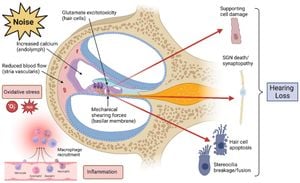Charles Biétry, the renowned sports journalist, has captured the attention of viewers with his deeply moving story as he confronts his battle against amyotrophic lateral sclerosis (ALS), also known as Charcot's disease. The interview, conducted by Audrey Crespo-Mara and set to air on TF1's Sept à Huit, presents Biétry’s heartfelt reflections on life, loss, and the innovative ways he continues to communicate even after losing his ability to speak. The edition will be broadcast on January 26, 2025.
Once the face of sports coverage at Canal+, Biétry now faces the monumental challenges of ALS, which progressively destroys motor neurons leading to muscle weakness and paralysis. With courage, he prepared to share his story, emphasizing the importance of connection with loved ones. "Il était hors de question que la maladie qui le prive de la parole l'empêche de témoigner s'il en avait envie," remarked Crespo-Mara, highlighting Biétry's determination to speak through the assistance of artificial intelligence.
Using advanced technology, his voice has been digitally recreated, allowing him to express his thoughts and emotions authentically. This remarkable achievement offers viewers an opportunity to connect with Biétry’s reality, providing insights not just from the perspective of sports journalism but also shining light on the experiences of those afflicted by terminal illnesses.
At his serene home in Carnac, accompanied by his wife, Biétry reflects on his legacy, sharing cherished memories from his storied career. The interview promises to be "une ode à la vie qu’il nous livre chez lui, en compagnie de sa femme," as described by the TF1 team. It seeks to inspire others by illustrating his unwavering spirit and commitment to living fully until the end.
Tragically, Biétry acknowledges the gravity of his condition, stating, "son témoignage [...] une ode à la vie qu’il nous livre chez lui," capturing the bittersweet essence of his story. He candidly expresses his prognosis of only having "a few weeks or months to live," emphasizing both the urgency and importance of sharing his experiences.
He also touches on deeply personal matters, discussing his viewpoints on end-of-life care and the legislation surrounding assisted dying. He stated, "Je ne veux pas être branché sur une machine pour respirer alors qu’il n’y a plus rien, plus d’avenir..." These haunting words reflect his desire to maintain control over his destiny amid the overwhelming challenges of his illness.
With forethought and love, Biétry and his family have organized their affairs, including plans he openly communicates about assisted suicide, expressing, "Je ne veux pas mal mourir," underlining his commitment to preserving his dignity. His fight for joy and laughter, surrounded by family, remains at the core of this poignant narrative, with the aim to keep sharing life's moments until the very last.
Biétry's story is more than just one of struggle; it is one of resilience and the human spirit's refusal to surrender. It serves as both a tribute to his contributions to sports journalism and a heartfelt message about the preciousness of life during difficult times. Viewers are invited to join Biétry on this emotional voyage, marking not just the end of his career but also celebrating the remarkable life he lived and the memories he created.



